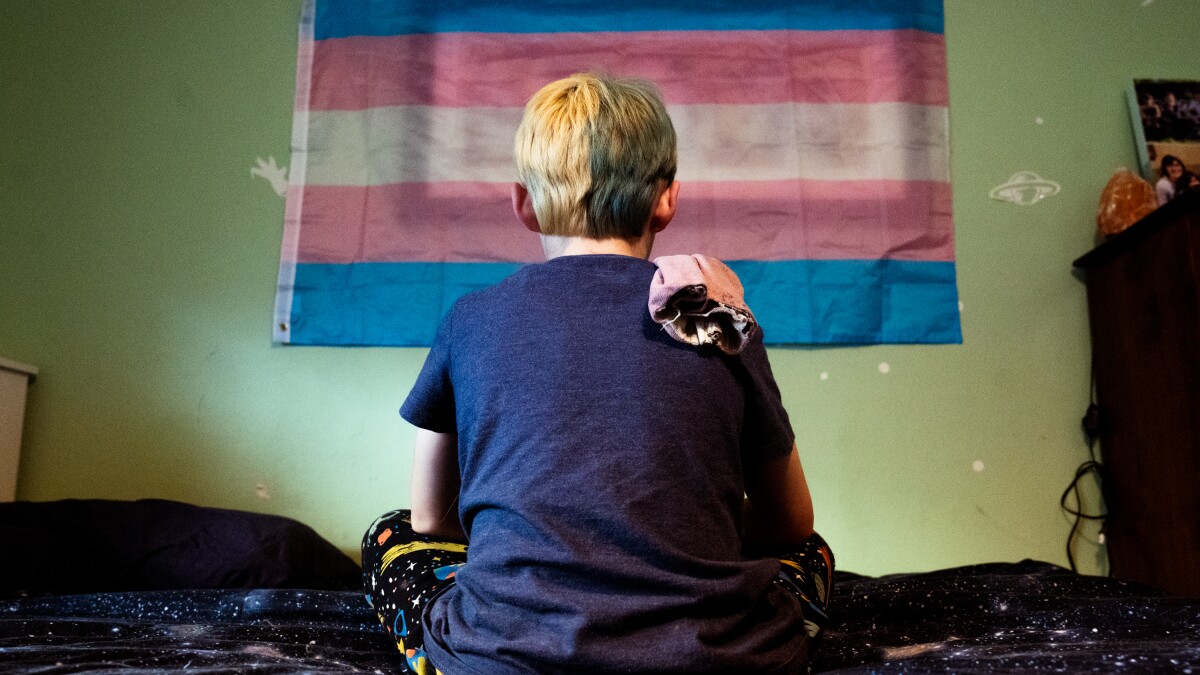
Transgender Missourians under 18 and their families can now get help finding gender-affirming care in other states through a regional project operated by a North Carolina-based nonprofit.
The Southern Trans Youth Emergency Project connects people in states where gender-affirming care for minors has been banned or restricted by referring them to clinics and doctors in states that still offer hormone replacement therapy, puberty blockers and other treatments.
“Our country is in a time of crisis for youth having their health care removed,” said Allison Scott, director of impact and innovation at the Campaign for Southern Equality, which operates the donation-funded program. “And we recognize that if we’re running a program that is scalable and sizable enough, if we can support other states, then we thought it was the right thing to do.”
The Missouri legislature earlier this year passed a law that bans gender-affirming medical procedures for minors.
The law has an exception for those already receiving treatment, but some Missouri providers, including youth transgender clinics at Washington University and University of Missouri Health, have stopped giving gender-affirming care to those under 18, citing legal risks stemming from language in the new law.
Missouri families of trans youth can now contact case workers at the Campaign for Southern Equality by filling out anonline form.The organization will then contact families and connect them to providers in other states. It will also give out small grants of $500 to cover travel expenses or other emergency costs.
The most crucial part of the project, which now operates in 16 states, is quickly establishing a patient with a new doctor, Scott said. Families can spend years trying to find gender-affirming treatment, and having to start over again can be daunting.
“We get twice as many people who call just trying to figure out how to get healthcare for their child after it’s been taken away from them,” she said. “It’s built around the main theory of continuity of care.”
Advocates for transgender children and their families in Missouri contacted the Campaign for Southern Equality earlier this year when they saw the legislature take up legislation that limited access to care for transgender young people, said Katy Erker-Lynch, executive director of PROMO Missouri, which campaigns for LGBTQ rights in the state.
“They work really creatively to get to know the individuals to provide micro-grants, patient navigation, and to help boost our ecosystem of LGBTQ organizations to work together,” she said. “So it’s a pretty close partnership.”
The Campaign also worked with The GLO Center in Springfield and members of the state’s chapters of TransParent.
Erker-Lynch said the project is similar to abortion funds and patient logistics groups that became more popular after the U.S. Supreme Court overturned Roe vs. Wade in 2022.
“Is this taking a page out of the playbook for abortion rights and access to reproductive justice and freedom?,” she said. “Yes, absolutely.”
The difference is that a trans person needs ongoing care, instead of one or two trips to an out-of-state abortion clinic, Erker-Lynch said.
Collins Chetwin, who coordinates support groups at the GLO Center, said trans youth are particularly vulnerable to new restrictive laws.
“Especially when we’re talking about kids who have just come out or just decided to talk to their families about gender affirming care, that’s an especially fragile time in life,” they said. “Just having access is really important.”
The new state restrictions don’t only affect youth, though, Chetwin said. The law also restricts using Medicaid funds for gender-affirming treatment, and prohibits incarcerated people from gender-affirming surgeries.



